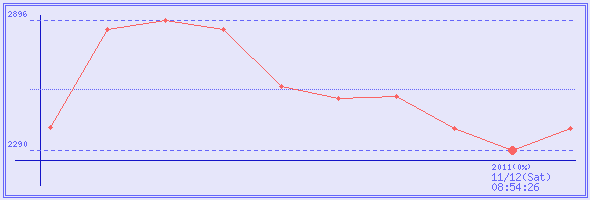お店のコメント(スペック情報を含む場合もあり)
内容説明
As Iran continues to develop its nuclear program and explicitly denounces Israel, Michael Karpin’s The Bomb in the Basement provides important context for the ongoing tensions in the Middle East.After Israel won its war of independence in 1948, founding prime minister David Ben-Gurion realized that his country faced the possibility of having to fight Arab nations again in the future. He embraced the idea of developing a nuclear capability and put a young lieutenant, Shimon Peres, in charge of the project. This was the beginning of Israel’s quest for nuclear capability, a project that could not have happened without the cooperation of the French. In The Bomb in the Basement, journalist Michael Karpin gives us the most complete account of how Israel became the Middle East’s only nuclear power and how its status as an officially unacknowledged nuclear nation affects the politics of that volatile region.Karpin’s research includes exclusive interviews that provide new insights into the key figures behind the program (notably a harsh rivalry between Peres and Isser Harel, the first head of Mossad). He explains how different U.S. administrations have dealt with Israel’s nuclear status, from Eisenhower’s disapproval to Johnson’s open support. And he shows how the key to Israel’s nuclear capability has been its policy of ?nuclear ambiguity.?A compelling account of a complicated history, The Bomb in the Basement raises provocative questions about how Israel’s nuclear arsenal may affect not only its own future, but the future of the entire Middle East.
From Publishers Weekly
[Signature]Reviewed by Lydia MilletUntil recently there were five declared nuclear powers in the world: the United States, Russia, the United Kingdom, France and China. Israel has never admitted to possessing a nuclear arsenal, pursuing a policy of ?ambiguity? and refusing to sign the Nuclear Non-Proliferation Treaty, but for decades it has been recognized internationally as a nuclear state.Israeli journalist Karpin’s groundbreaking new book, following in the wake of a documentary of the same name he made in 2001, offers an in-depth look at Israel’s acquisition of nuclear arms technology and at the ideology and politics driving it. The stories of the men who played major roles in bringing the bomb to Israel—longtime prime minister David Ben-Gurion, scientist Ernst Bergmann, diplomat and intelligence operative Shalhevet Freier, future Nobel laureate Shimon Peres—are compelling and finely drawn. That Israel’s technical capacity to produce nuclear weapons should have come through backdoor negotiations with France, rather than from its richer and more powerful American ally, will come as a surprise to many readers not familiar with this complex and intriguing history.Karpin’s strength lies in tracing material detail rather than in speculation of a more abstract kind. He avoids exploring the philosophical and moral dimensions of Israel’s deployment of nuclear weapons or of its policy of official denial, tending to invoke the horrors of the Holocaust as inspiration for defense of the Jewish state rather than to examine the specific reverberations of the official choice to embrace and hide weapons of mass destruction. The irony that Israel—a state created with a very special mission as a utopian refuge for Jews escaping persecution and genocide—has chosen to base its security on a weapons system historically used exclusively for the mass killing of civilians is barely examined.This is hardly surprising, since such a discussion could amply fill a second volume; nonetheless, the author’s conclusion that achieving the nuclear option, though possibly a ?great mistake,? did have a ?certain justification,? namely the threat of the destruction of Israel by neighboring Arabs, is conceptually underwhelming. Still, for all those interested in understanding how Israel’s idealistic origins dovetail with its hawkish position in the game of nuclear deterrence and fraught relationship with other countries in the Middle East, this well-researched study is a must-read. (Jan.)Lydia Millet’s most recent novel, Oh Pure and Radiant Heart (Soft Skull), brings atom bomb physicists Robert Oppenheimer, Enrico Fermi and Leo Szilard back to life in modern-day Santa Fe.
Copyright © Reed Business Information, a division of Reed Elsevier Inc. All rights reserved. --このテキストは、絶版本またはこのタイトルには設定されていない版型に関連付けられています。
商品ジャンル
商品名
最終調査日時
2013/02/04 (Mon) 20:38:12
価格の変動(直近3回 : ¥0は未調査回)
取得日時
販売価格
ポイント
実質価格
在庫状態
2013/02/04 (Mon) 20:38:12
¥2,390
0 %
¥2,390
2011/11/12 (Sat) 08:54:26
¥2,290
0 %
¥2,290
2011/09/23 (Fri) 12:08:26
¥2,391
0 %
¥2,391

サイト内キーワード検索
商品名の検索は通常の商品検索ボックスで。
コメントやスペックなどから検索したい場合はこちらから。
コメントやスペックなどから検索したい場合はこちらから。
広告


![【クリックでお店のこの商品のページへ】The Bomb in the Basement: How Israel Went Nuclear and What That Means for the World [ペーパーバック]](http://ec2.images-amazon.com/images/I/5150yhPVg9L._BO2,204,203,200_PIsitb-sticker-arrow-click,TopRight,35,-76_AA240_SH20_OU09_.jpg)


